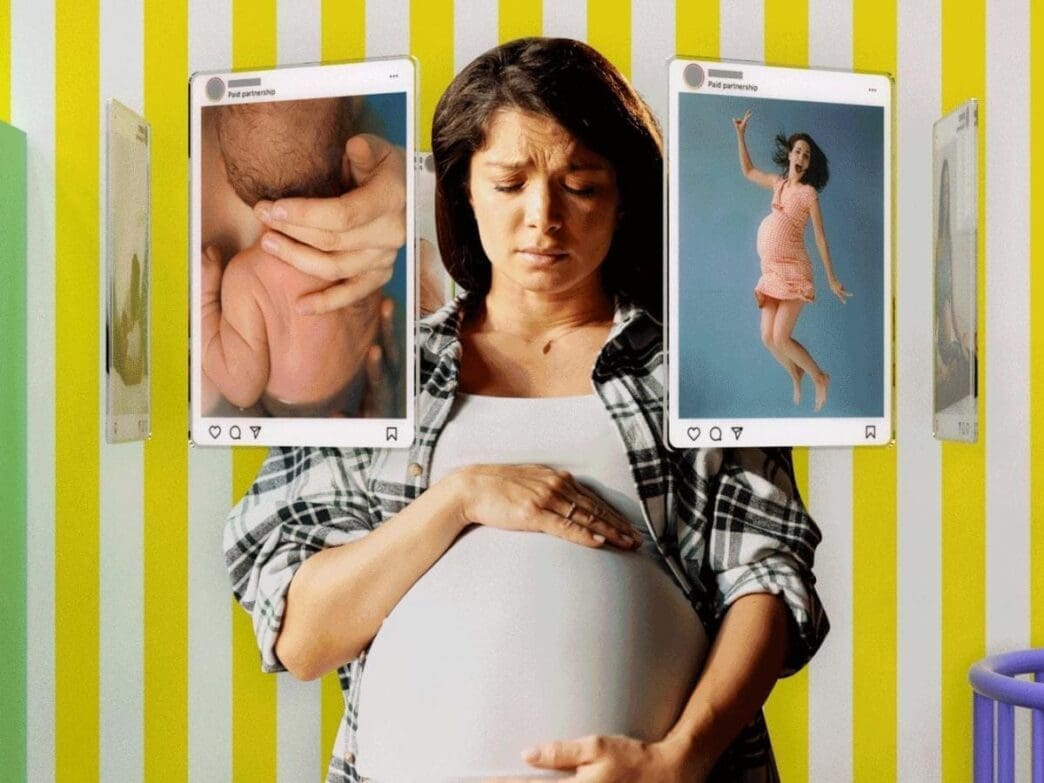Amelia Harnish found herself slumped on her couch, her mind preoccupied with the imminent arrival of her baby. As she scrolled through her phone, she was quickly swept into the digital tide of pregnancy advice. This wasn’t your usual prenatal advice—this was the Instagram and TikTok era, where influencers dictate how to have the ‘perfect’ birth. This ideal seemed just as elusive as it was alluring, yet incredibly persuasive to expecting moms like Amelia.
Scrolling through social media as an expectant mother means encountering a flood of advice on optimizing the birth experience. This isn’t just about the basics like birth education classes or making plans. It’s about a new industry of birthing influencers who promote ‘natural’ births without interventions, or ‘ecstatic’ births through hypnosis, among others. The drive to achieve the optimal birth has morphed into an absurd belief that childbirth can be mastered and has become another way to judge the next generation of parents.
Rebecca Silber, a soon-to-be mother and marketing professional from New Jersey, reflects on how pregnancy content has become an initiation into modern parenting. It starts with childbirth methods and evolves into debates over parenting styles. This seemingly empowering choice to adopt a particular birthing style is often about trying to exert control over a deeply emotional and unpredictable experience.
Take Megan Nash, for instance. As a physical therapist assistant in Roanoke, she followed breathing exercises and mantras suggested by birth influencers, hoping for a pain-free delivery without medication. The reality was far different. She ended up requesting an epidural and felt a lingering shame that she couldn’t achieve what she’d envisioned based on her Instagram feed. It was only when she met another mom, who made different choices during childbirth yet faced similar parenting challenges, that she realized the outcome for her baby might have been the same regardless of her birthing choices.
Some, like Sarah Denney, a professor in Indianapolis, adhered to online advice hoping to avoid complications like tearing during delivery. Even though she tried a suggested side-birth position, she didn’t achieve the outcome she expected. Shannon Wolfman, another mother from Indianapolis who chose a C-section, faced social media’s critical gaze, worrying she had hindered her and her baby’s bonding.
These scenarios illustrate how the quest for the ‘right’ childbirth could exacerbate existing anxieties, especially when juxtaposed against the assertive claims of social media influencers. Even informed individuals like Amelia herself aren’t immune to the pressures, despite their better judgment. The anxiety, often amplified by online misinformation, can lead to second-guessing what were very natural childbirth experiences.
Amelia eventually decided to break away from the digital frenzy by deleting her Instagram account. By focusing on real-life advice and trusting her medical team, she realized the importance of being kind to oneself during the childbirth process. This move was a small step toward reclaiming control amidst the overwhelming tide of social media influences.
As Amelia prepares for her second childbirth, she emphasizes trust in her healthcare professionals and herself over social media advice. Her decision to delete Instagram underscores a significant shift in priorities—one where the health and well-being of mother and baby trump the pressures of achieving a so-called perfect birth. This approach allows her to face the birthing experience with a practical mindset, aiming for a healthy outcome over perfection.
Source: Yahoo







